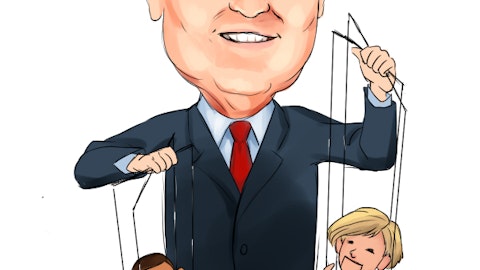The U.S. equities have been struggling to extend their rally that started in mid-November, and it is highly unlikely that the S&P 500 Index will reach another record closing high by the end of the year. The two-day Federal Open Market Committee meeting gets underway on Tuesday, during which the Federal Reserve is widely anticipated to raise interest rates for the first time in more than nine years. It is also highly unlikely that investors will run away from equities following a potential rate hike, so the ability of the U.S. economy to tackle the higher rates seems to be the primary factor that will guide the direction of the U.S. equities in the upcoming year. Meanwhile, some companies’ insiders have started to unload their holdings lately, which might lead to growing concerns among investors about certain companies’ future prospects. Although insiders tend to sell shares for a wide array of reasons that might not necessarily be related to their companies’ outlook, this type of activity may still have an impact on investors’ investing decisions. For that reason, this article will reveal noteworthy insider sales registered at several U.S.-listed companies and analyze the performance of these companies.
Prior to discussing the insider trading activity, let’s make you familiar with what Insider Monkey does besides providing high-quality articles. At Insider Monkey, we track hedge funds’ moves in order to identify actionable patterns and profit from them. Our research has shown that hedge funds’ large-cap stock picks historically underperformed the S&P 500 Total Return Index by an average of seven basis points per month between 1999 and 2012. On the other hand, the 15 most popular small-cap stocks among hedge funds outperformed the S&P 500 Index by an average of 95 basis points per month (read more details here). Since the official launch of our small-cap strategy in August 2012, it has performed just as predicted, returning 102% and beating the market by more than 53 percentage points. We believe the data is clear: investors will be better off by focusing on small-cap stocks utilizing hedge fund expertise (while avoiding their high fees at the same time) rather than large-cap stocks.
Chemed Corporation (NYSE:CHE) saw one of its executives unload shares last week. Chief Financial Officer and Executive Vice President David Patrick Williams sold 5,000 shares on Friday at a sale price of $151.72 per share, 1,600 shares of which were held through his Individual Retirement Account (IRA). After the recent sale, the CFO currently holds a direct ownership stake of 38,568 shares. The company operates through its two wholly-owned subsidiaries, VITAS Healthcare Corporation and Roto-Rooter Group. The company’s VITAS segment offers hospice and palliative care services, while the Roto-Rooter segment focuses on plumbing and drain cleaning services. Shares of Chemed Corporation (NYSE:CHE) have gained 41% thus far in 2015 and are trading at a relatively rich trailing price-to-earnings ratio of 23.65 (the average for the S&P 500 Index stands at 22.73). The company’s strong stock performance was mainly attributable to the strong financial performance of its two business segments. Chemed reported consolidated services revenues of $1.14 billion for the nine months that ended September 30, up from $1.08 billion reported for the same period in 2014. This increase was propelled by higher revenue generated from the water restoration business and higher plumbing revenue. At the same time, the company’s VITAS business registered higher revenues mainly due to higher Medicare reimbursement rates and an increase in days of care. Ken Fisher’s Fisher Asset Management reported ownership of nearly 554,000 shares in Chemed Corporation (NYSE:CHE) through its 13F filing for the September quarter.
Follow Chemed Corp (NYSE:CHE)
Follow Chemed Corp (NYSE:CHE)
Receive real-time insider trading and news alerts
Let’s head to the next page of this insider trading article, where the insider sales registered at Axis Capital Holdings Limited (NYSE:AXS) and PDC Energy Inc. (NASDAQ:PDCE) are revealed.





